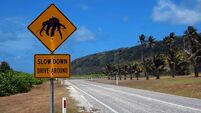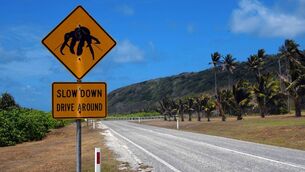Contraceptives, antibiotics, painkillers... human medicines having negative effect on wildlife

Himalayan griffon vulture: Tens of millions of vultures – which perform critical ecosystem services in disposing of rotting carcasses that would otherwise pose an infection risk – have died as a result of eating livestock that had been treated with diclofenac. A new 'vulture restaurant' with clean meat has been set up in India. Picture: AP /Kasetsart University)
Antibiotics have been a lifesaver for countless millions of people worldwide since their introduction in the 1940s. Many once life-threatening conditions are now successfully managed with antibiotics.
However, this vital lifeline against infection is weakening, mainly due to the rapid rise of antimicrobial resistance (AMR). This has been identified as among the greatest threats to human health, with infections such as tuberculosis and pneumonia becoming increasingly difficult to treat.








